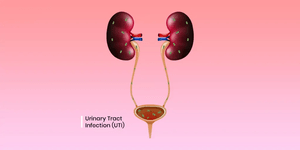
A team of scientists has found how the bacteria Escherichia coli, or E. coli can cause urinary tract infections (UTIs) in healthy people.
Women are more prone to UTIs than men and almost half of them are affected at some point in their lives with uncomfortable and often painful symptoms.
It usually occurs in the bladder or urethra, causing pelvic pain, increased urge to urinate, pain with urination and blood in the urine. It can also lead to serious infections in the kidney causing back pain, nausea, vomiting and fever.
The study published in the journal PNAS examined how E. coli uses host nutrients to reproduce at an extraordinarily rapid pace during an infection.
The team from the University of Michigan in the US used mouse models to decode the bacteria’s mechanism.
They identified bacterial genes that may be important for establishing infection by looking at mutant strains that were not as good at replicating in the mouse models.
The team found a group of genes controlling transport systems, which if inhibited can help stop the rapid growth of E.coli.
“When bacteria need something to grow, say an amino acid, they can get it in two ways,” said Harry Mobley, Professor of Microbiology and Immunology at the University’s Medical School
“They can make it itself, or they can steal it from their host using what we call a transport system,” he added.
Further, the team also found a type of transporter called ABC (for ATP-binding cassette) that is essential for infection.
“Many bacteria strains lacking these nutrient import systems were defective for growth on bladder and kidney,” the team said.
The findings open avenues for the development of new therapeutics — which is especially important in an era of increasing antibiotic resistance.











